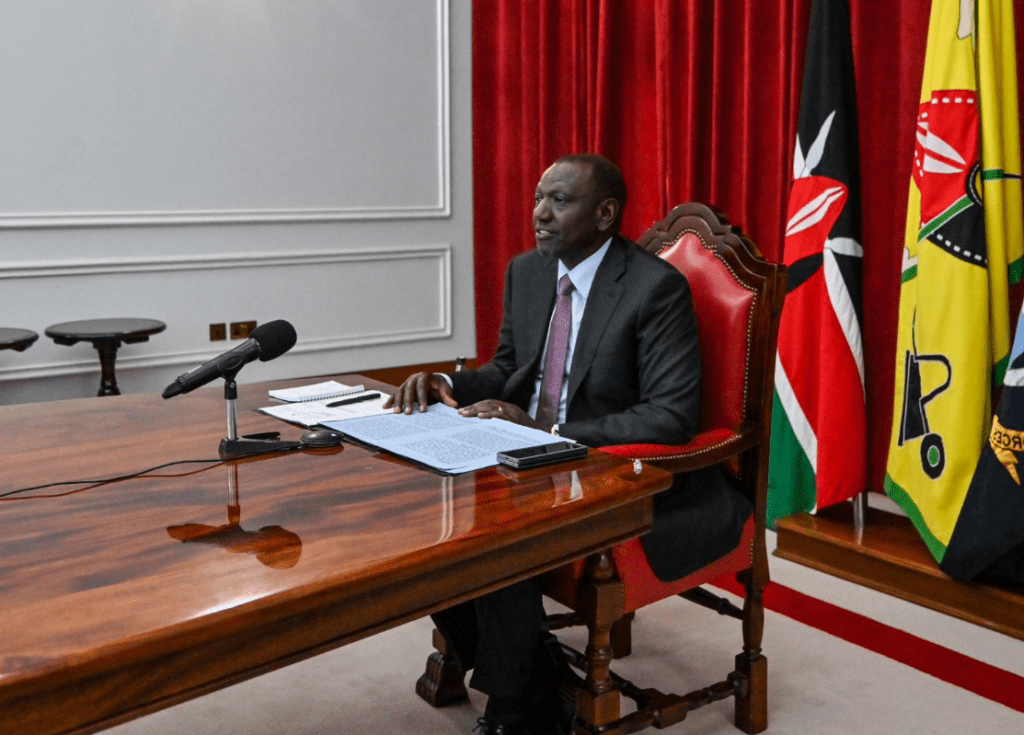President William Ruto chaired a Special Cabinet meeting at State House, Nairobi, on Tuesday, where the Cabinet approved the 2025 Budget Policy Statement (BPS).
The statement, which will now be forwarded to Parliament, sets a Sh4.2 trillion budget for the 2025/26 financial year.
The total expenditure, equivalent to 22.1% of GDP, includes Sh3.09 trillion for recurrent spending, Sh725.1 billion for development, Sh436.7 billion in county transfers, and Sh5 billion for the Contingency Fund.
Under the Division of Revenue Bill 2025, the National Government proposes a shareable revenue of Sh2.8 trillion, with Sh405.1 billion allocated to county governments as an equitable share and Sh10.6 billion for the Equalisation Fund.
The county allocation represents 25.8% of the most recent audited revenue (Sh1.57 trillion from the 2020/21 financial year), aligning with constitutional requirements.
The County Allocation Revenue Bill 2025 will distribute the county share based on the Third Basis Formula, while the County Governments Additional Allocation Bill 2025 proposes an extra Sh69.8 billion – KSh12.89 billion from the National Government and Sh56.91 billion from development partners.
With these additional funds, total county transfers for 2025/26 will amount to Sh474.87 billion.
The 2025 BPS outlines the government’s economic priorities, focusing on sustaining growth, ensuring fiscal stability, and promoting inclusive green development. Under the Bottom-Up Economic Transformation Agenda, GDP growth rebounded to 5.6% in 2023, up from 4.9% in 2022, driven by a strong recovery in agriculture after two years of drought.
Growth is projected to remain stable at 5.3% in 2025 and 2026, supported by increased agricultural productivity, a resilient services sector, and strategic government interventions.
To maintain economic momentum, the government has outlined six key priorities: reducing the cost of living, eradicating hunger, creating jobs, expanding the tax base, improving foreign exchange balances, and fostering inclusive growth.
These will be achieved through strategic investments in key economic sectors, strengthening production and market access, and attracting local and foreign investments.
The government’s fiscal policy for 2025/26 prioritises fiscal consolidation to reduce debt vulnerability while ensuring adequate funding for essential public services.
This will be achieved through expenditure rationalisation, revenue mobilisation, and enhanced
tax compliance.
The Medium-Term Revenue Strategy will guide tax reforms, ensuring efficiency, fairness, and progressivity while
balancing revenue generation with social protection.
Key measures include expanding the tax base, leveraging technology for tax efficiency, sealing revenue loopholes, and maximising non-tax revenues from ministries, departments, and agencies.
Public finance management will be strengthened through zero-based budgeting, a transition to accrual-based accounting, and the adoption of the Treasury Single Account to improve cash flow management.
The government will also fully operationalise IFMIS asset inventory management modules and scale up public-private partnerships (PPPs) to enhance private sector involvement in public service delivery.
Cabinet also approved the proposed 2024/25 Supplementary Estimates No. II, authorising an additional Sh344.8 billion in expenditures, with Sh199.0 billion allocated for recurrent spending and Sh145.8 billion for development.
These funds will address government and externally financed projects, personnel emoluments, budget realignments, and revenue adjustments.
The approval comes amid economic disruptions, including civil protests in June, July, and August 2024, which led to the withdrawal of the Finance Bill 2024.
The Bill had initially proposed raising Sh344.3 billion in additional revenues but faced strong public opposition.
Cabinet Endorses Plans To Enhance Passenger Experience, Bolster Security At JKIA,

